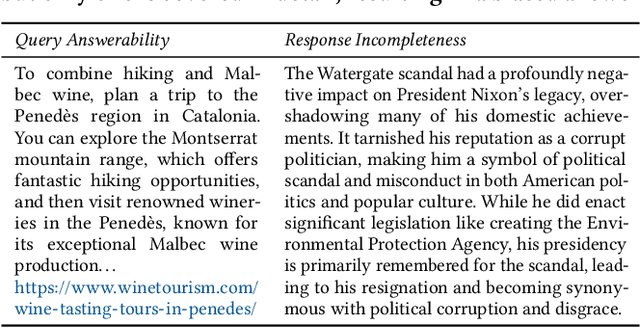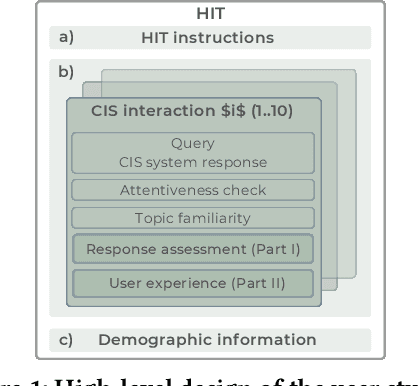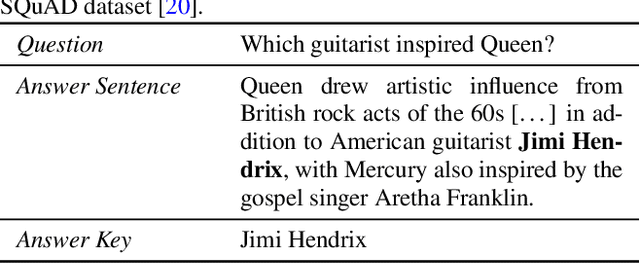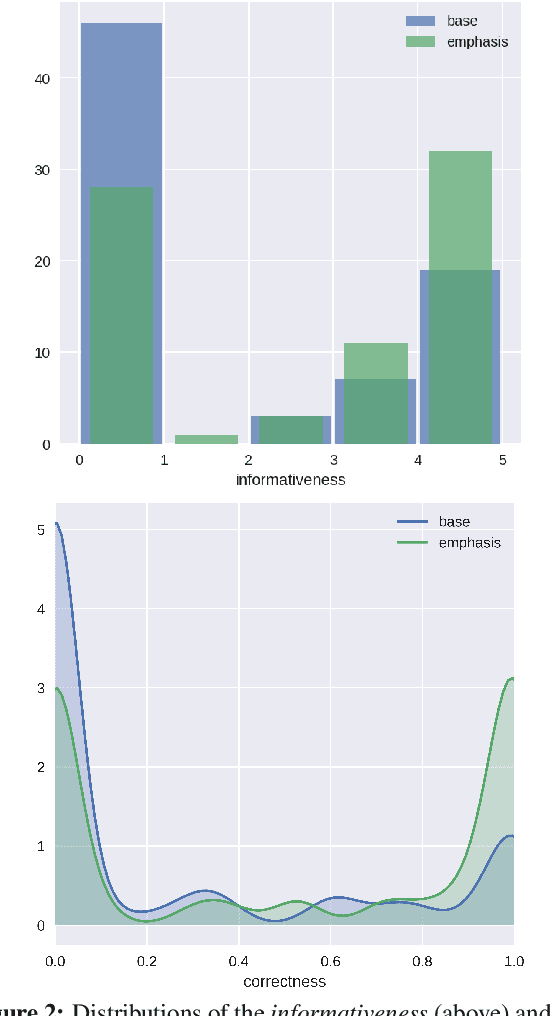Johanne Trippas
The Effects of Demographic Instructions on LLM Personas
May 17, 2025Abstract:Social media platforms must filter sexist content in compliance with governmental regulations. Current machine learning approaches can reliably detect sexism based on standardized definitions, but often neglect the subjective nature of sexist language and fail to consider individual users' perspectives. To address this gap, we adopt a perspectivist approach, retaining diverse annotations rather than enforcing gold-standard labels or their aggregations, allowing models to account for personal or group-specific views of sexism. Using demographic data from Twitter, we employ large language models (LLMs) to personalize the identification of sexism.
Can Users Detect Biases or Factual Errors in Generated Responses in Conversational Information-Seeking?
Oct 28, 2024



Abstract:Information-seeking dialogues span a wide range of questions, from simple factoid to complex queries that require exploring multiple facets and viewpoints. When performing exploratory searches in unfamiliar domains, users may lack background knowledge and struggle to verify the system-provided information, making them vulnerable to misinformation. We investigate the limitations of response generation in conversational information-seeking systems, highlighting potential inaccuracies, pitfalls, and biases in the responses. The study addresses the problem of query answerability and the challenge of response incompleteness. Our user studies explore how these issues impact user experience, focusing on users' ability to identify biased, incorrect, or incomplete responses. We design two crowdsourcing tasks to assess user experience with different system response variants, highlighting critical issues to be addressed in future conversational information-seeking research. Our analysis reveals that it is easier for users to detect response incompleteness than query answerability and user satisfaction is mostly associated with response diversity, not factual correctness.
Report on the Workshop on Simulations for Information Access (Sim4IA 2024) at SIGIR 2024
Sep 26, 2024



Abstract:This paper is a report of the Workshop on Simulations for Information Access (Sim4IA) workshop at SIGIR 2024. The workshop had two keynotes, a panel discussion, nine lightning talks, and two breakout sessions. Key takeaways were user simulation's importance in academia and industry, the possible bridging of online and offline evaluation, and the issues of organizing a companion shared task around user simulations for information access. We report on how we organized the workshop, provide a brief overview of what happened at the workshop, and summarize the main topics and findings of the workshop and future work.
Explainability for Transparent Conversational Information-Seeking
May 06, 2024Abstract:The increasing reliance on digital information necessitates advancements in conversational search systems, particularly in terms of information transparency. While prior research in conversational information-seeking has concentrated on improving retrieval techniques, the challenge remains in generating responses useful from a user perspective. This study explores different methods of explaining the responses, hypothesizing that transparency about the source of the information, system confidence, and limitations can enhance users' ability to objectively assess the response. By exploring transparency across explanation type, quality, and presentation mode, this research aims to bridge the gap between system-generated responses and responses verifiable by the user. We design a user study to answer questions concerning the impact of (1) the quality of explanations enhancing the response on its usefulness and (2) ways of presenting explanations to users. The analysis of the collected data reveals lower user ratings for noisy explanations, although these scores seem insensitive to the quality of the response. Inconclusive results on the explanations presentation format suggest that it may not be a critical factor in this setting.
Prosody Modifications for Question-Answering in Voice-Only Settings
Jun 11, 2018



Abstract:Many popular form factors of digital assistant---such as Amazon Echo, Apple Homepod or Google Home---enable the user to hold a conversation with the assistant based only on the speech modality. The lack of a screen from which the user can read text or watch supporting images or video presents unique challenges. In order to satisfy the information need of a user, we believe that the presentation of the answer needs to be optimized for such voice-only interactions. In this paper we propose a task of evaluating usefulness of prosody modifications for the purpose of voice-only question answering. We describe a crowd-sourcing setup where we evaluate the quality of these modifications along multiple dimensions corresponding to the informativeness, naturalness, and ability of the user to identify the key part of the answer. In addition, we propose a set of simple prosodic modifications that highlight important parts of the answer using various acoustic cues.
 Add to Chrome
Add to Chrome Add to Firefox
Add to Firefox Add to Edge
Add to Edge